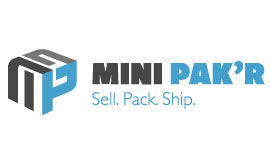RanMarine’s Waste Shark Eats Trash Floating in the Ocean
Dutch sustainable technology innovators are at it again, this time with an aquatic drone with an appetite for trash floating at sea. RanMarine and the Port of Rotterdam Authority have teamed up and set loose the first wave of Waste Sharks, autonomous robots with an aim to keep our waterways clean.
It’s not news that our oceans are increasingly polluted. From oil spills to islands made of garbage, to the acidification of the water due to excess levels of carbon dioxide in our atmosphere, our current consumption and waste habits are spiraling out of control. A recent report from Fortune states that “last year, there were an estimate 5.25 trillion pieces of plastic debris in the ocean, with 269,000 tons floating to the surface.” On top of the millions of tons of plastics waste we dump into the oceans year over year globally, these numbers are getting ridiculous.
In order to keep our oceans clean, the Port of Rotterdam Authority has been working with environmental tech company RanMarine to come up with a solution. As Europe’s largest port and, arguably, the world’s most technologically advanced, it only makes sense that the Port of Rotterdam has released a few sharks you’d actually be happy to see swimming around: Waste Sharks, as a matter of fact, with an appetite for seaborne trash floating at the surface.
You can see the prototypes in action here:
The intent behind the Waste Shark isn’t meant to attack floating waste islands like the Great Pacific Garbage Patch head-on. Instead, the seafaring drones preemptively catch garbage before it can drift out to open waters, caught up in currents, and collect into the gyres where garbage islands have been forming.
While two prototypes exist (a small and large model, aptly named “Slim” and “Fatboy” respectively), the Waste Shark can collect up to 1100 pounds of trash autonomously per trip, dipping its mouth about a foot below the water’s surface. In addition to garbage, the drones also collect information such as water quality and weather data. They’re also equipped with algorithms which, given time, allow the Waste Sharks to find the most effective garbage-collection routes.
The Waste Shark isn’t the only drone swimming in Rotterdam’s waterways; PortXL’s AquasmartXL drone can also be seen patrolling the port. Instead of collecting trash, however, the AquasmartXL instead is used mainly for surveillance, sending images in real-time to port authorities in order to report any damage it comes across.
Though they’re still being tested before more widespread deployment and commercial application, Port of Rotterdam Authority Allard Castelein is optimistic about the technologies. “Innovation cannot be forced,” he said to Futurism in a recent interview. “However, you can create an environment in which innovation is likely to take place and be in line with the market.” Indeed, sustainable tech initiatives like this one might be costly to first implement, but the long-term benefits (a cleaner environment, technological innovation, and creative entrepreneurialism) outweigh short-term expenses.
Just as Dave Hakkens, another Dutch green entrepreneur who’s looking to inspire an upcycled plastics industry with open-source recycling machines, is stripping businesses and individuals of any excuse to allow our plastics waste problem to continue, Castelein echoes the same sentiment: when confronted with an expensive problem, one can’t just soft pitch excuses and pretend the issue doesn’t exist. Instead, they see opportunity, shifting perspective away from costs and essentially undercutting late adopters of green technology by coming up with more efficient solutions they’ll grow reliant on later.
When it comes to sustainable innovation, whether it’s Hakken’s Precious Plastic program or RanMarine’s Waste Shark, we could learn a thing or two about creative problem solving from our Dutch friends across the pond. Who knows? Maybe you could be the one that leads the way in the next push for green technology on this side of the Atlantic.
After all, what’s more American than capitalist free market competition anyway? Are you going to wait while someone else solves the problem, or are you going to be a part of the solution?

